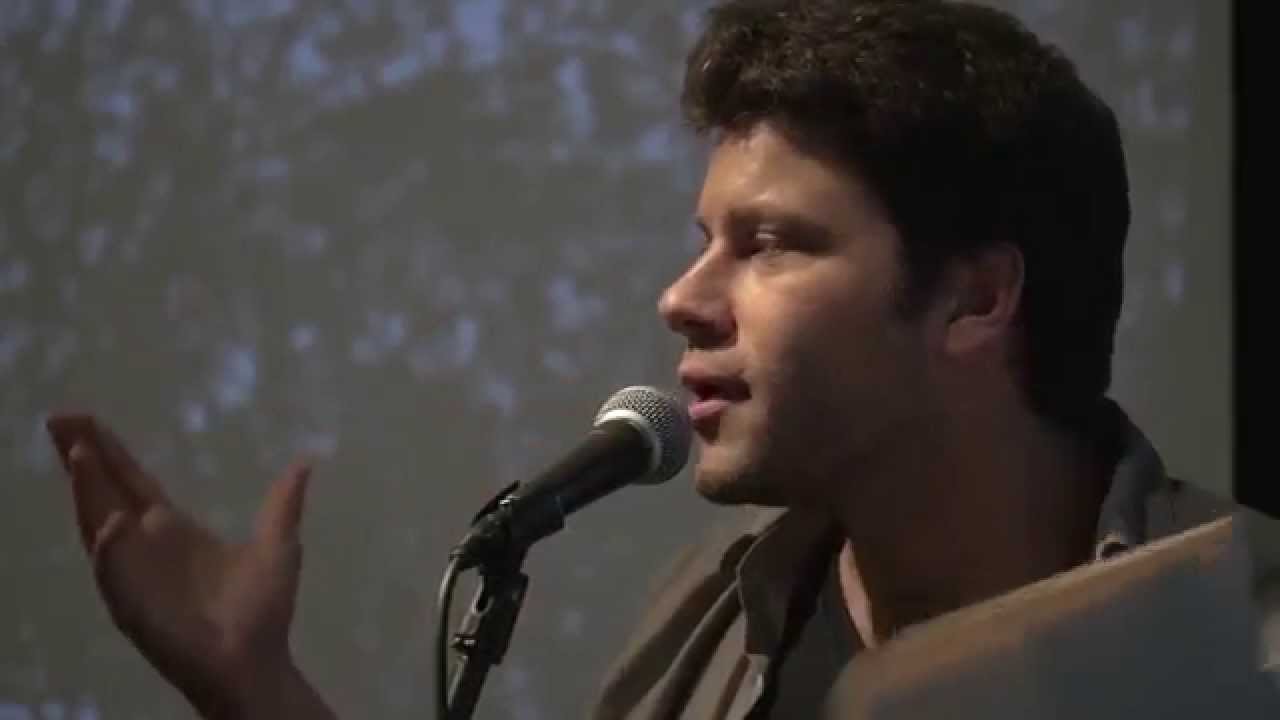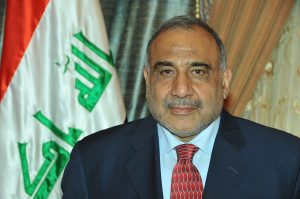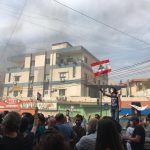by Charles Davis
Imagine that the people of Iraq are real human beings with hopes and fears who are subject to the influence of powerful regional actors but are nonetheless capable of acting without someone in Washington, Tehran, or Riyadh always pulling their strings. Imagine that there was always more to Iraq than Sunni jihadists, Shia death squads, and opportunistic Baathists. Imagine a silenced majority of non-sectarian Iraqis outgunned, perhaps, but opposed to all sectarian extremism, against foreign intervention of all sorts, and even capable on occasion of effecting change from the bottom up.
In the wake of the 2003 U.S.-led invasion and occupation, “Gunfire drowned out the stories of ordinary Iraqis,” writes Ali Issa, an Iraqi-American organizer with the War Resisters League, in the introduction to Against All Odds: Voices of Popular Struggle In Iraq. During and after the conflict, the people of Iraq have often found themselves cast as passive observers manipulated by outside agitators and incapable of determining their own destiny. But how, Issa asks, “can we understand politics, economics, culture, or society anywhere, without the main protagonists, people?”
His book aims to introduce the rest of the world to Iraq’s silenced majority: to union organizers, feminists, progressive activists, and others one might very well be surprised to learn exist. And the way Against All Odds does so is fitting. It lets these people speak for themselves through a collection of press reports, interviews, and communiqués.
The Voice of Protest
“This is a farewell kiss from the Iraqi people, you dog,” journalist Muntadhar al-Zaidi famously yelled as he threw his shoes at US President George W. Bush during what was meant to be a celebratory 2008 press conference in Baghdad. That was one of the last times we heard from an Iraqi who isn’t an ayatollah or prime minister, but Zaidi did not stop speaking out.
With his brother Uday, Muntadhar helped lead a non-violent protest movement in 2011 against both “the occupier and its agents,” namely the United States and the prime minister it picked, Nouri al-Maliki. The Popular Movement to Save Iraq, the Zaidis’ organization was called. Along with other grassroots organizations it demanded in a March 2011 statement “the revocation of the sectarian and ethnic quota system”— Iraq’s crudely sectarian system of government, imposed by its foreign occupier, dictates that the prime minister be a Shiite, the president a Kurd, and the speaker of parliament a Sunni—the “release of innocent prisoners from occupation and government prisons,” and “the formation of an independent judicial committee to investigate the actions of the security forces against peaceful demonstrators.”
Protesters—regular Iraqis—backed up their demands with demonstrations across Iraq. As their last demand suggests, such protests were met with violence. Years before the Islamic State (ISIS or IS) took over Mosul, thousands of people took over its streets demanding an end to foreign occupation, the sectarianism of the Maliki regime, and the officially sanctioned Shia death squads that tortured and killed thousands of Sunnis. For 20 days, the people in Mosul staged a sit-in, with poetry and theatrical performances. On the 20th day, state security forces attacked, killing one protester and wounding 21 others.
“This has shown us once and for all that terrorism and the Iraqi government are two sides of the same coin,” Uday al-Zaidi said at the time. For his criticism, he was abducted and tortured. Indeed, many activists were.
“The thugs of Maliki have proven again that they are the enemies of women,” said Yanar Mohammed, president of the Organization of Women’s Freedom in Iraq, in September 2011 after thugs abducted one of her group’s organizers, 21-year-old Aya Al Lamie, from Baghdad’s Tahrir Square, “under the eyes of the police and the army.” Lamie was “beaten by thugs using sticks and whipping her back and arms with cables,” according to Mohammed. She was told her torture was a “first warning.”
“The US government and CNN bless the uprisings of Libya and Syria,” Mohammed observed, “while ignoring Iraqi struggles, as they tell the whole world that Iraqis prosper in the ‘democracy’ that the United States installed.”
The Façade of Democracy
So it went more than eight years after the fall of Saddam Hussein. The dictator had fallen, but what followed wasn’t free. It was, instead, a democratic façade for the same dictatorial policies. The liberators even kept Saddam’s ban on independent union organizing, though it hasn’t stopped workers from engaging in collective action. Labor organizations helped lead the fight against the wholesale privatization of Iraq’s oil in 2007, denouncing plans to open up the petroleum industry to unfettered foreign investment as an attempt “to rob the national wealth,” and their activists helped organize the 2011 protests that Prime Minister Maliki dismissed as organized by al-Qaeda.
“Many sectors of society have participated in these protests: youths, women, civil society groups, unions, and the new pro-democracy formations,” Hashmeya Muhsin al-Saadawi, president of the Electrical Utility Workers Union in Iraq, told Ali Issa in a May 2012 interview. “The government should listen very closely to people’s legal demands and seek to satisfy them,” she said. “It should also pay attention to popular calls for the reform of the political process and correct its course on the path to building a civil, democratic state.”
It’s hard to hear chants over the sound of gunfire. In 2013, a year after Saadawi spoke, security forces followed up their attack on Mosul with a raid on a protest camp in a town outside the northern city of Kirkuk, killing over 40 people. A year later, faced with an opponent who was armed, these forces were not so brave, running and dropping their weapons at the sight of IS. And why, a Sunni watching them flee might have reasoned, should I pick up their weapons and fight IS myself? Why pick up arms for a central government that already suspects every member of your sect is a terrorist, saving its bullets for your activists? So, many did not.
Even after Washington and Tehran replaced the hated Maliki with the fresher face of Haider al-Abadi, the new and improved government of Iraq hasn’t done much to convince many of the country’s Sunnis that it sees Iraq as their country too. After IS took Ramadi, tens of thousands of Sunni refugees fled. The government barred them from entering their nation’s capital, informing mothers with small children who had left everything behind that they could not enter Baghdad unless a known-to-be-loyal citizen vouched for their not being a terrorist, a policy so alienating it almost certainly created more terrorists to find.
“The fall of several Iraqi cities into the hands of armed groups does not represent the dreams of the people who live there,” as Falah Alwan, president of the Federation of Workers’ Councils and Unions in Iraq, a labor group founded by communists who refused to work with the US occupation, said in 2014. “Their demands to be rid of sectarianism are clear and direct. They expressed them through nonviolent sit-ins, but armed terrorist groups took advantage of this environment to take power.”
That reactionary forces all over the world exploit and coopt people’s legitimate grievances does not delegitimize the grievances themselves. Rather, it points to the need to address those grievances—disenfranchisement, poverty, mass incarceration—in a way that undercuts those forces of reaction. And after years of their peacefully petitioning for change from a government that treated them like terrorists, the victims are not to blame but those who wielded power so abusively that even the Islamic State came to be seen as a slightly lesser evil.
For those on the ground, there’s no real choice: the struggle must go on because it’s their country’s only hope. “The working class in Iraq is the common force that exists across the country, from the north of Kurdistan to the furthest points south,” as Alwan put it. “This is the only force that can end fragmentation and division.”
“Sectarianism was forced on us, planted among us by outside forces,” activist Nadia al-Baghdadi told Ali Issa. US occupiers drafted a crudely sectarian constitution that allotted power based on sect—a Sunni can rise no higher than speaker of the parliament—and Iraq’s rulers have used militias trained by Iran—and shielded by an authority armed by the US—to carry out plausibly deniable sectarian killings. “All this easily leads to something like IS,” she added.
The Rise of the Islamic State
Were the conditions not ripe for its existence in Iraq and now Syria, IS would not exist, just as the insurgency against US occupiers would not have existed had there not been thousands of Iraqis willing to be insurgents against a US occupation. To ignore their reasons for fighting (or not), reducing the Iraqi people to unwitting pawns of whichever foreign power one likes the least, is to once more subject them to erasure. From 2005 to 2010, Iraqis provided 95 percent of the funding for al-Qaeda in Iraq, which later became IS. Iraqis also drove al-Qaeda underground, only for it to rise again among the Sunni tribes that fought the jihadists and were arrested en masse. Extreme conditions always favor the extremist. And blame for that predictable consequence should go to those who created the conditions, not those who after years of war side with whoever promises a modicum of protection.
The same dynamic can be found in Syria, where IS saw an opportunity for territorial expansion and invaded. The Youth of the Great Iraqi Revolution, one of the organizations that helped lead protests against the Maliki government, was unequivocal: “We approve of your blessed revolution,” it declared in a 2011 message. “This is our stance on every revolution that is led by any nation that stands against its oppressor,” the group said, noting that the support provided by the US- and Iranian-backed government of Iraq for “the regime of murder and blood” in Damascus. “[Y[ou are more worthy of Syria than a regime that has unleashed its army and allowed it to kill its own people,” it stated, “while not once aiming a bullet at the occupied Golan Heights over these past decades.”
In Iraq and Syria both, however, the horrors of war have extinguished the glimmer of hope in 2011. Tens of thousands have died, and millions are without homes. Friday evening chants and messages of solidarity from abroad have proven no match for the weaponry of powerful nation-states and those they favor. Progressive forces are under attack across the region, from terrorists claiming to kill for religion and from secular governments killing in the name of modernity. “Popular demands have morphed into a tool for reactionary forces to divide up the political pie,” Falah Alwan told Issa.
In 2010, Prime Minister Maliki told CNN that he was “absolutely” open to the idea of extending the US occupation of Iraq. By 2011, after Iraq’s civil society erupted in protest from Mosul to Basra and made such an extension a political career killer, even in a pseudo-democracy, Maliki was refusing to extend legal immunity to the occupying force, effectively saying “no” to the US government’s request to stay. Even today, though the present is bleak, Iraqis stubbornly refuse to accept their assigned role as passive observers of their victimization. Although their government treats Sunni refugees with suspicion, activists with the Organization of Women’s Freedom in Iraq Now are busy resettling them, finding homes in volunteer-run shelters across Baghdad for women who fled the Islamic State.
“Our movement is small, and our influence—I cannot say that it is large,” said Jannat Alghezzi, the group’s media director. “But at the same time, the impact we do make is like a ray of light,” she continued. Her hope is that the work she does helping individuals in an era of reaction plants the seeds for systemic, progressive change down the line. “I know that I am not going to benefit from the things that I am currently fighting for,” said Alghezzi. “My daughter, or perhaps my granddaughter, might gain from what I am doing today. Despite everything, we are optimistic.”
Iraqis have indeed been through everything: dictatorship, invasion, occupation, and civil war. Against All Odds reminds us that, despite all this, the people of Iraq continue to exist, they haven’t given up, they can still speak, and they want to be heard. For those far away who wish to show solidarity with people in a country terrorized by one’s own, the first step might be: shut up and listen.
Photo: Ali Issa
Charles Davis is a writer and producer based in Los Angeles. His work has been published by outlets such as Al Jazeera, The New Republic, and Salon.






Thanks to USA, the meddler. USA pokes its nose everywhere, and wants instability all over the world. They tried to meddle in the Ukraine, and if they try more, Putin will give them a fitting lesson. They tried their best against Iran, and Iran, made the USA to lick their arse. If anyone would ask me which is the most wicked country in World, I would say, the UNITED STATES OF AMERICA.